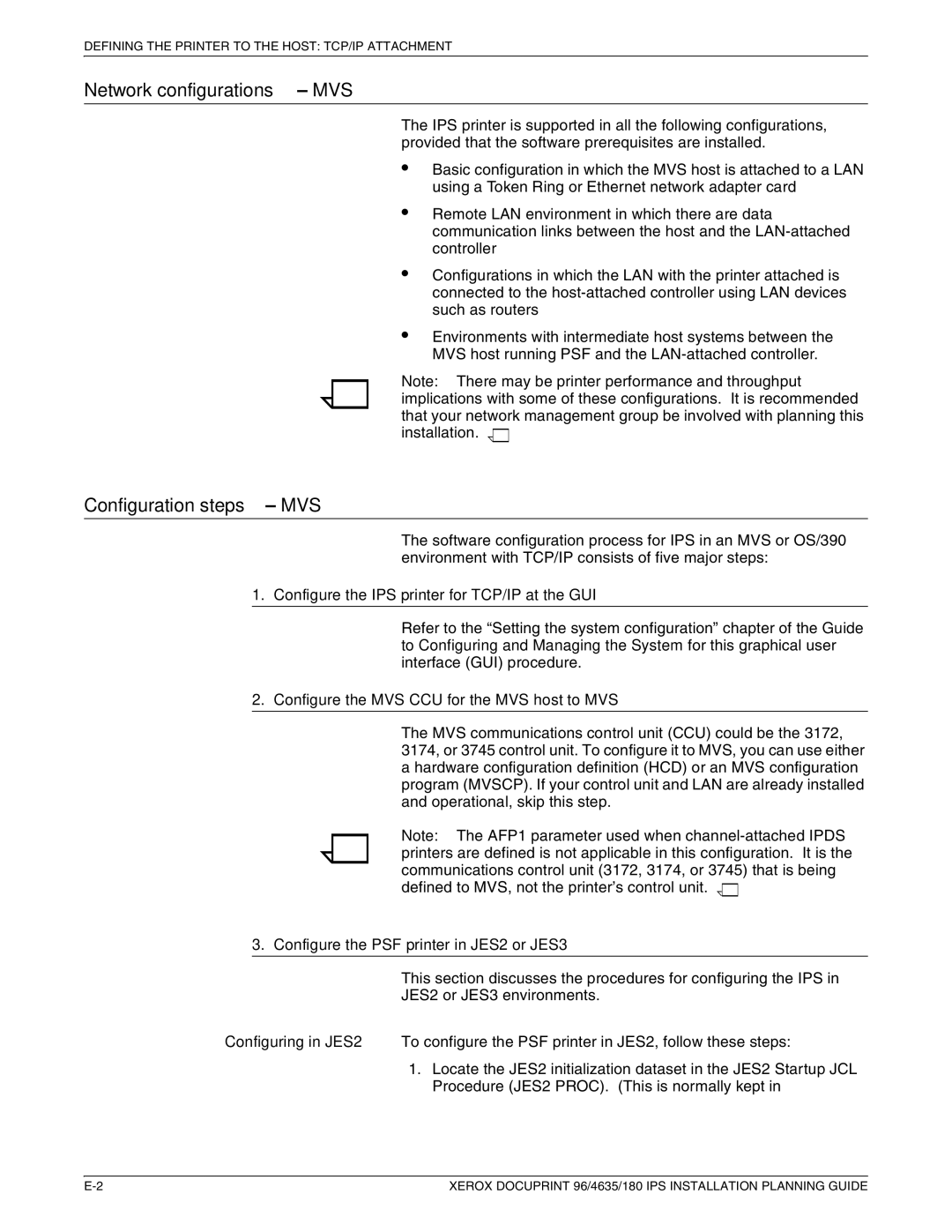
DEFINING THE PRINTER TO THE HOST: TCP/IP ATTACHMENT
Network configurations – MVS
The IPS printer is supported in all the following configurations, provided that the software prerequisites are installed.
•
•
•
Basic configuration in which the MVS host is attached to a LAN using a Token Ring or Ethernet network adapter card
Remote LAN environment in which there are data communication links between the host and the
Configurations in which the LAN with the printer attached is connected to the
•Environments with intermediate host systems between the MVS host running PSF and the
Note: There may be printer performance and throughput implications with some of these configurations. It is recommended that your network management group be involved with planning this installation. ![]()
![]()
Configuration steps – MVS
The software configuration process for IPS in an MVS or OS/390 environment with TCP/IP consists of five major steps:
1. Configure the IPS printer for TCP/IP at the GUI
Refer to the “Setting the system configuration” chapter of the Guide to Configuring and Managing the System for this graphical user interface (GUI) procedure.
2. Configure the MVS CCU for the MVS host to MVS
The MVS communications control unit (CCU) could be the 3172, 3174, or 3745 control unit. To configure it to MVS, you can use either a hardware configuration definition (HCD) or an MVS configuration program (MVSCP). If your control unit and LAN are already installed and operational, skip this step.
Note: The AFP1 parameter used when ![]()
![]()
3. Configure the PSF printer in JES2 or JES3
This section discusses the procedures for configuring the IPS in
JES2 or JES3 environments.
Configuring in JES2 To configure the PSF printer in JES2, follow these steps:
1.Locate the JES2 initialization dataset in the JES2 Startup JCL Procedure (JES2 PROC). (This is normally kept in
XEROX DOCUPRINT 96/4635/180 IPS INSTALLATION PLANNING GUIDE |
